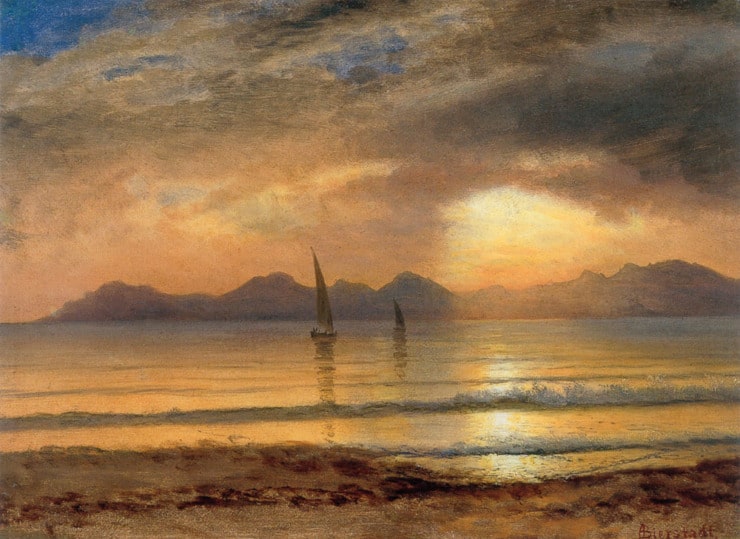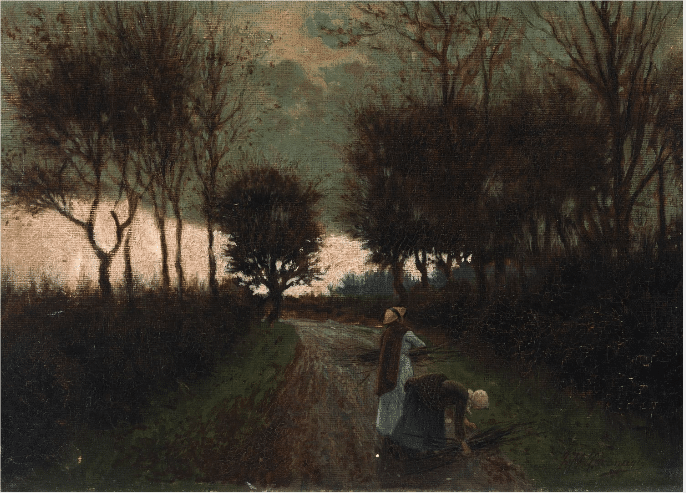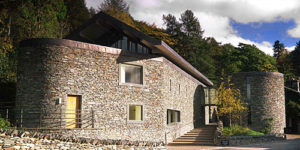< Return to all Wordsworth poems
It Is A Beauteous Evening
It is a beauteous evening, calm and free,
The holy time is quiet as a Nun
Breathless with adoration; the broad sun
Is sinking down in its tranquility;
The gentleness of heaven broods o’er the Sea;
Listen! the mighty Being is awake,
And doth with his eternal motion make
A sound like thunder—everlastingly.
Dear child! dear Girl! that walkest with me here,
If thou appear untouched by solemn thought,
Thy nature is not therefore less divine:
Thou liest in Abraham’s bosom all the year;
And worshipp’st at the Temple’s inner shrine,
God being with thee when we know it not.
—William Wordsworth
Enjoy Artistic Representations of “It Is A Beauteous Evening” by William Wordsworth

Sunset Over A Mountain Lake by Albert Bierstadt (1830–1902).

A November Evening by Joseph Malachy Kavanagh (1856–1918).
Listen to these Readings of “It Is A Beauteous Evening”
Listen to these Musical Interpretations of “It Is A Beauteous Evening” by William Wordsworth
About William Wordsworth
William Wordsworth, an English poet born in 1770, is credited with having a strong impact on the poetry of his time. He worked with Samuel Taylor Coleridge to publish a collection, Lyrical Ballads, which includes poems believed to be among the most influential in Western literature. With this publication, the two helped initiate English literature’s Romantic Age.

Jerwood Centre at the Wordsworth Trust in Grasmere
Wordsworth also worked to increase the accessibility of poetry, encouraging the use of more common language, and promoting the virtues of lyric poetry.
While in college, Wordsworth went on a walking tour of England and lived for a time in France, where he was greatly impacted by the French Revolution. His earliest work was published in 1793.
His most famous work, The Prelude, was published by his widow in 1850. He worked on the semi-autobiographical poem throughout much of his life, never quite satisfied to publish it.
Wordsworth served as England’s Poet Laureate from 1843 until he died in 1850.
That’s it for It Is A Beauteous Evening by William Wordsworth!